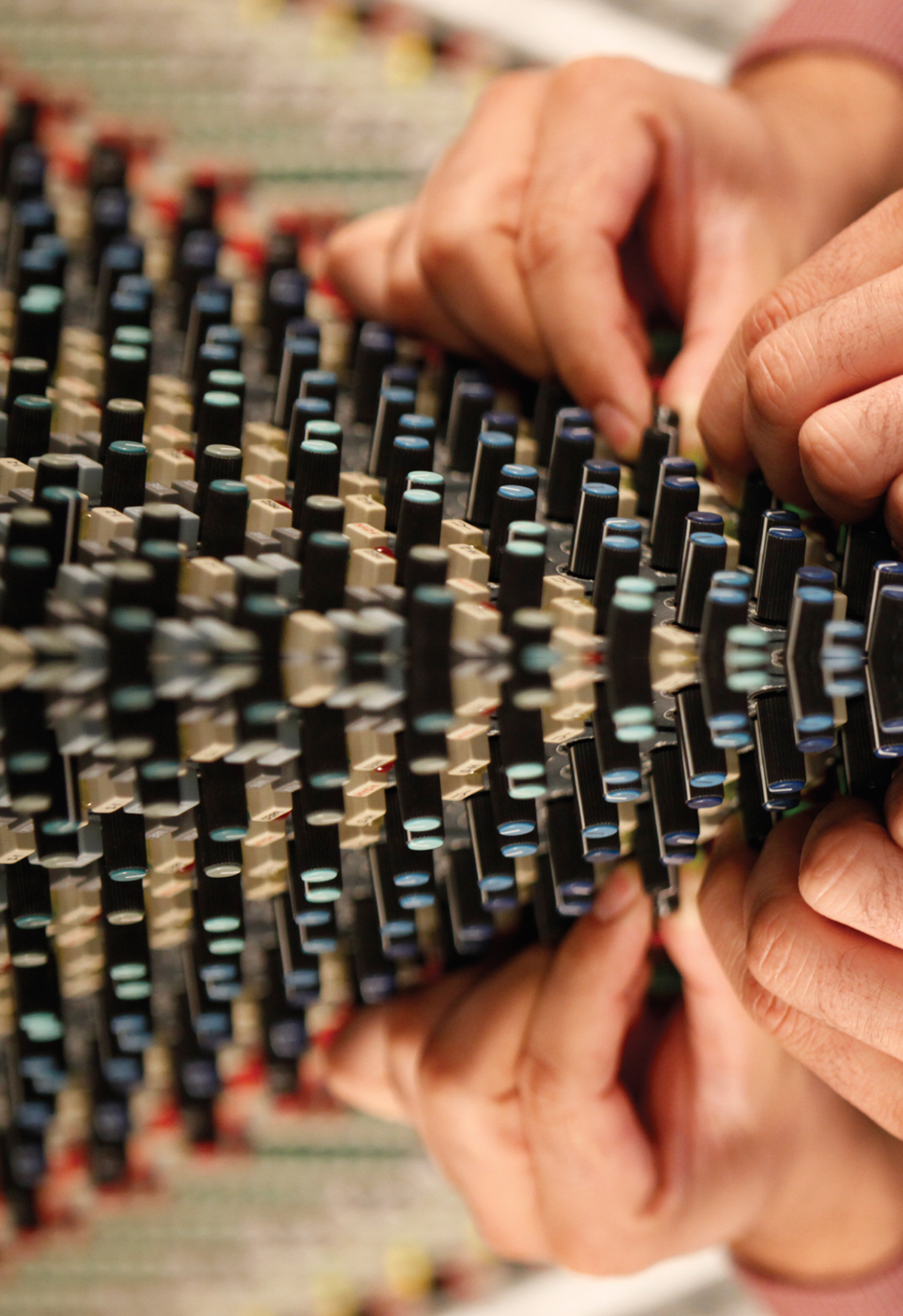Last year I met up for beers with an audio engineer who was passing through town while doing front of house for a well-known artist on a sold out tour. While we were chatting about life and audio, he brought up an interesting point. It seemed some of the folks he was traveling with brought severely negative attitudes along and were bringing the rest of the crew "down." Most of us have probably been around this scene before; the kind of people that disparage the very artist and managers that have provided them with a job. He wondered why any of the crew would have these attitudes about their work. They have touring gigs in the music industry; it would seem that this was the position they had all aspired to and achieved. As he told me, "Maybe there are far too many people for whom this is just a job, not a vocation."
We see the same thing in recording studios. Take a quick look at any online recording forum and you will see engineers, studio owners, and producers lambasting their "stupid" clients and the "dumb" things they say. Yes, if recording people day after day is your job, dealing with some of the clients can be trying — I have been there, and I get it. But if you wake up each morning assuming you will be working with clueless idiots, then maybe there's something wrong with your attitude. Human interaction is a delicate thing, and I firmly believe that if you are harboring negative thoughts towards someone, especially one you are dealing with in close quarters, then he or she is going to feel this negativity coming off you no matter how hard you try and hide it.
I had a session last year where one of the people being recorded became upset over some issues, and he began acting difficult. I worked hard to sort things out and kept a positive attitude the entire time. While we were in the control room, watching him perform, I looked over at my assistant, Adam Lee, and said, "We could start talking about this person, but I think it's better if we don't say a word and keep moving forward." Adam is smart and good with people, so he just smiled and nodded his head. The session moved on, and in the end it was a fun and productive day. We didn't need to sit in the control room bitching. The client was under more pressure than us; it was their day and their art, and we were there to help.
In another scenario, I recently wrapped up mixes and mastering supervision on an album I was deeply involved in (producing, engineering, playing on, etc.) over the course of nearly two years. During the making of this album some songs got into 150 track counts, mixes went through up to nine revisions, and everything ended up taking far longer than we had anticipated. It was not the easiest record to make — the challenges along the way sometimes seemed insurmountable — but we both got along great the whole time and have ended up ecstatic about the album. But here's the thing: When I would tell other recording folks about the session ("Songs had 150 tracks. Mixing took months.") almost every single one would begin to roll their eyes and say, "Oh, man. Artists these days." I'd end up quickly explaining that I was part of that process, and I didn't have any issues with the way we were working, or with my awesome client. It shouldn't have surprised me that this was where people would go with this, but it was a bummer that so many expected the worst and pinned some sort of blame on the artist.
Think about it. Every time you snicker behind a client's back, or post some nasty comments later that night online, you could instead be taking that opportunity to patiently educate (if needed) and communicate with the artist you are working with. You will feel better. They will appreciate you for it. And I'd be shocked if the art you are collaborating on doesn't come out better for it as well. Remember: this is the job you chose — and be grateful that the artist chose you too!


